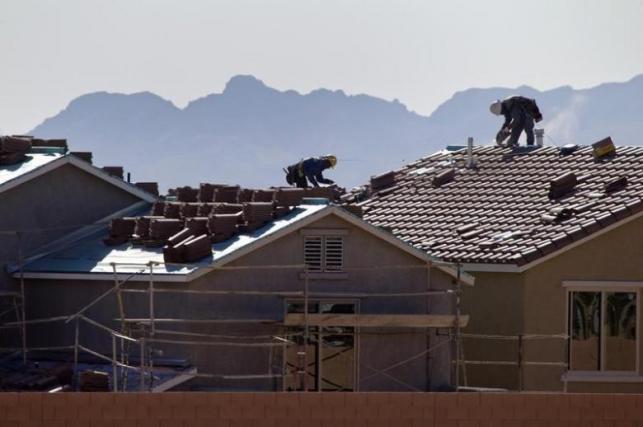-
Tips for becoming a good boxer - November 6, 2020
-
7 expert tips for making your hens night a memorable one - November 6, 2020
-
5 reasons to host your Christmas party on a cruise boat - November 6, 2020
-
What to do when you’re charged with a crime - November 6, 2020
-
Should you get one or multiple dogs? Here’s all you need to know - November 3, 2020
-
A Guide: How to Build Your Very Own Magic Mirror - February 14, 2019
-
Our Top Inspirational Baseball Stars - November 24, 2018
-
Five Tech Tools That Will Help You Turn Your Blog into a Business - November 24, 2018
-
How to Indulge on Vacation without Expanding Your Waist - November 9, 2018
-
5 Strategies for Businesses to Appeal to Today’s Increasingly Mobile-Crazed Customers - November 9, 2018
United States housing starts down in August as Northeast sees pronounced drop
USA housing starts fell more than expected in August following two consecutive months of increases, according to data released by the Commerce Department.
Advertisement
According to the U.S. Housing and Urban Development and the Commerce Department, nationwide housing starts in the U.S. fell 5.8 percent to a seasonally adjusted annual rate of 1.14 million units in August 2016. July’s starts came in at a 1.21 million-unit pace.
Permits for future construction slipped 0.4 per cent to a 1.14 million-unit rate last month as approvals for the volatile multi-family homes segment tumbled 7.2 per cent to a 402,000 unit-rate.
Relatively stronger momentum for single-family home construction suggests that builders are responding to rising prices and steady demand for that segment, while construction of larger properties is cooling.
Permits were flat at a 1.14 million pace in August, but were 2.3% lower than a year ago.
Monthly housing data can be choppy and is subject to sometimes large revisions.
Despite the mostly dreary data on housing starts, home builders are expressing renewed enthusiasm about their work: The September numbers on the National Association of Home Builders (NAHB)/Wells Fargo Housing Market Index (HMI) for newly built, single-family homes saw a six point leap to 65 from a downwardly revised August reading of 59.
July permits were revised to a 1.144 million rate from 1.152 million. Single-family housing completions in August were at a rate of 752,000; this is 0.3 percent below the revised July rate of 754,000. While this represented a less than 1 percent gain from the previous year, it was a 5.8 percent decrease from activity seen in July. As a result, starts advanced 1.4% in July, a smaller gain than initially estimated.
For example, it noted that jobs are being created at a decent pace at the same time as mortgage rates are close to record lows.
Advertisement
“With the inventory of new and existing homes remaining tight, builders are confident that if they can build more homes they can sell them”, NAHB economist Robert Dietz said Monday.





























